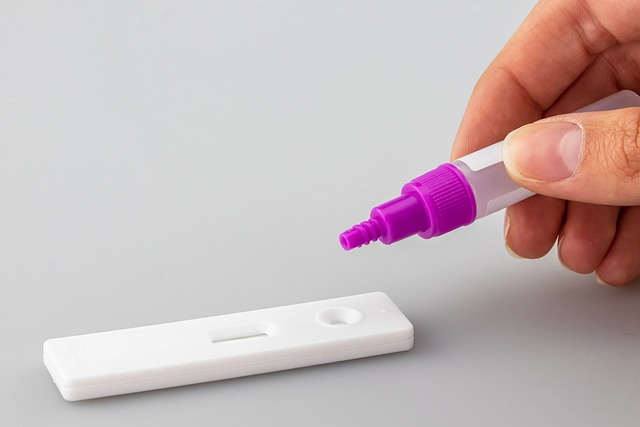Insights into Sperm Donation Programs in Italy
Sperm donation is a process that allows individuals to contribute to assisted reproductive technologies while potentially earning extra income. In Italy, various programs facilitate this process, providing detailed guidelines on eligibility and compensation. Understanding how these programs operate can help individuals make informed decisions regarding participation.

Sperm donation in Italy operates within a carefully regulated medical and legal framework that has developed over the past decade. The Italian healthcare system oversees these programs through specialized fertility clinics and medical centers, ensuring that all procedures meet strict national and European Union standards. This comprehensive approach addresses both the medical aspects of donation and the legal rights of all parties involved, creating a transparent system for those considering participation.
Understanding the Process of Sperm Donation Programs in Italy
The process begins with initial contact at authorized fertility centers throughout Italy. Potential donors undergo extensive medical evaluations, including comprehensive health screenings, genetic testing, and psychological assessments. Italian regulations require multiple visits over several months to complete the evaluation process. Medical professionals conduct detailed interviews to assess family medical history, lifestyle factors, and overall health status. The screening process includes blood tests for infectious diseases, genetic counseling sessions, and fertility assessments to ensure the highest quality standards.
Once approved, donors participate in a structured program that typically involves regular visits to the clinic. The actual donation process takes place in controlled medical environments, with samples processed and stored according to strict protocols. Italian facilities use advanced cryopreservation techniques to maintain sample viability, and all procedures follow international best practices for reproductive medicine.
Eligibility Criteria for Participating in Sperm Donation
Italian law establishes specific eligibility requirements for sperm donors that align with European medical guidelines. Candidates must be between 18 and 40 years of age, though some clinics prefer donors in their twenties and early thirties. Physical and mental health requirements are comprehensive, excluding individuals with hereditary diseases, chronic conditions, or certain lifestyle factors that could impact sample quality.
The screening process evaluates educational background, occupation, and personal characteristics as part of the comprehensive assessment. Donors must demonstrate psychological stability and understanding of the donation process implications. Italian regulations also require donors to provide detailed family medical histories spanning multiple generations, ensuring genetic screening accuracy.
Lifestyle factors play a significant role in eligibility determination. Clinics assess smoking habits, alcohol consumption, drug use, and overall fitness levels. Regular exercise, healthy diet, and absence of high-risk behaviors are typically required. Some programs also consider travel history and occupational exposures that might affect reproductive health.
Financial Aspects of Sperm Donation and Compensation Details
Compensation for sperm donation in Italy varies significantly across different regions and medical facilities. The financial structure typically includes reimbursement for time, travel expenses, and inconvenience rather than direct payment for biological material, aligning with European ethical guidelines for reproductive medicine.
| Clinic Type | Location | Compensation Range (EUR) |
|---|---|---|
| Public Hospital Centers | Milan, Rome | 30-50 per visit |
| Private Fertility Clinics | Northern Italy | 50-80 per visit |
| Specialized Reproductive Centers | Various Cities | 40-70 per visit |
| University Medical Centers | Major Cities | 25-45 per visit |
Prices, rates, or cost estimates mentioned in this article are based on the latest available information but may change over time. Independent research is advised before making financial decisions.
Most programs structure payments per successful donation visit, with additional compensation for completing extended commitment periods. Some facilities offer bonuses for donors who maintain consistent participation over six months or longer. The total monthly compensation can range from 200 to 400 euros for regular participants, depending on frequency and clinic policies.
Payment methods vary, with some clinics providing immediate cash compensation while others use bank transfers or prepaid cards. Tax implications should be considered, as compensation may be subject to Italian income tax regulations depending on total amounts received annually.
Medical Support and Ongoing Care
Italian sperm donation programs provide comprehensive medical support throughout the donation process. Regular health monitoring includes periodic blood tests, general health assessments, and consultation with reproductive medicine specialists. Clinics maintain detailed medical records and provide donors with health updates and test results.
Psychological support services are available at most facilities, recognizing the emotional aspects of donation decisions. Counselors help donors understand the long-term implications of their participation and provide resources for addressing any concerns that arise during the process.
Medical professionals also provide education about reproductive health, lifestyle optimization, and factors that can impact donation success. This ongoing support helps maintain program quality while ensuring donor wellbeing throughout their participation.
Legal Framework and Privacy Protections
Italy’s legal approach to sperm donation emphasizes anonymity and privacy protection for all parties involved. Donors cannot be contacted by recipients or resulting children, and personal identifying information remains confidential within the medical system. This legal framework provides security for donors while ensuring proper medical record keeping for health purposes.
The regulatory environment continues evolving, with recent updates addressing international standards and cross-border reproductive care. Italian law requires informed consent processes that clearly explain legal rights, responsibilities, and limitations for all participants in donation programs.
Sperm donation programs in Italy represent a well-structured approach to assisted reproduction that balances medical excellence with ethical considerations. The combination of rigorous screening processes, fair compensation structures, and comprehensive legal protections creates an environment that serves both donors and recipients effectively. As these programs continue developing, they maintain focus on safety, quality, and respect for all participants while contributing to Italy’s broader reproductive healthcare landscape.
This article is for informational purposes only and should not be considered medical advice. Please consult a qualified healthcare professional for personalized guidance and treatment.




